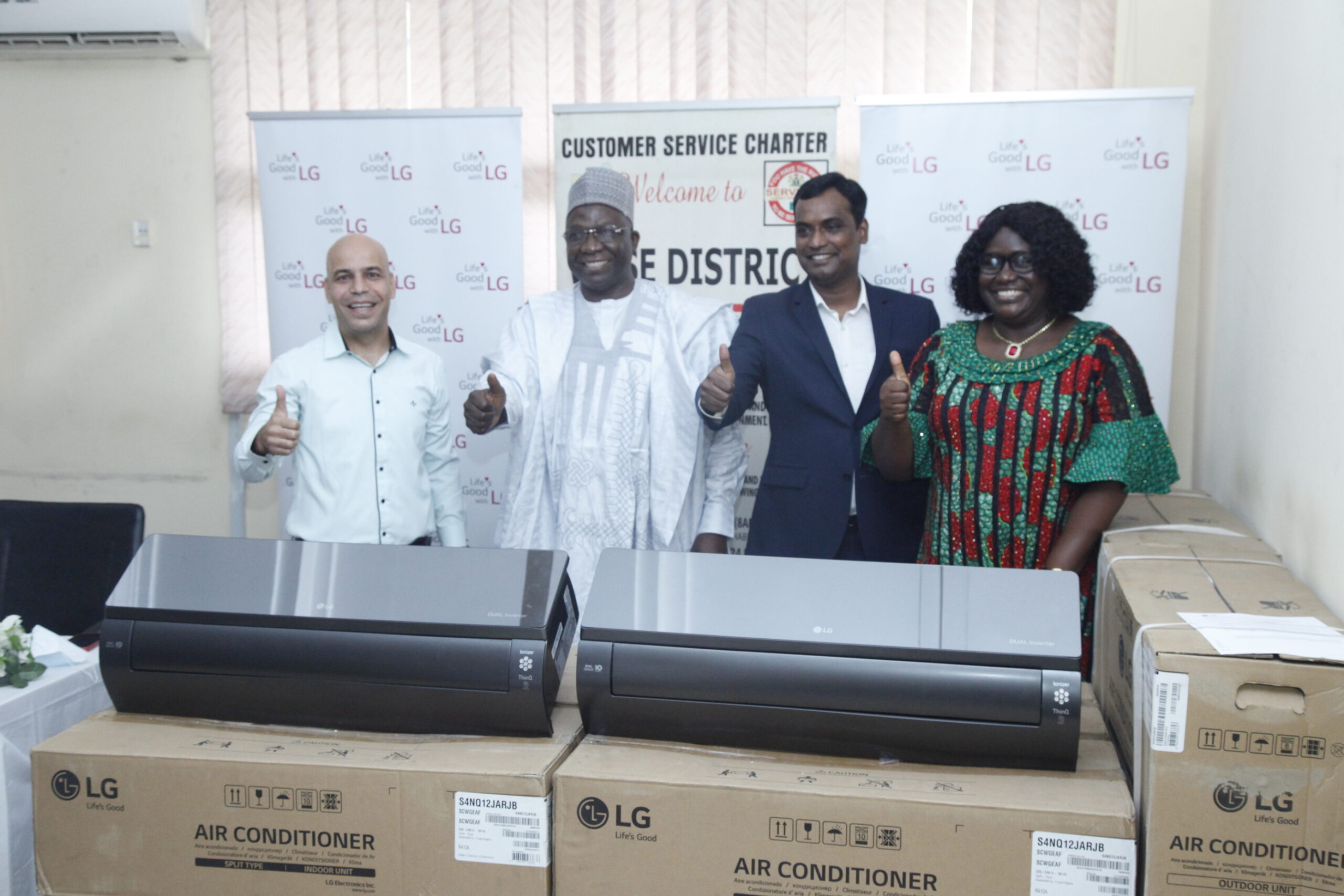Telecommunication and Information services contributed N4.84tn to the nation’s real Gross Domestic Product in the first two quarters of 2022 according to data from the National Bureau of Statistics.Punch can report
This is despite the numerous challenges that plagued the industry in the first six months of 2022.
The figureis 10.76 per cent increase from N4.37tn the sector contributed to the GDP in the corresponding period of 2021.
In terms of nominal GDP, the sector contributed N7.94tn in the first two quarters of the year.
The NBS calculates the sector’s contribution by adding up gross outputs such as revenue from telephone, telex, facsimile, telegraph, and other income from satellite and Internet services.
It also considers intermediate consumptions such as transit fees, operational expenditure, minor repairs and maintenance, and other expenses.
According to the national statistics body, telecoms is a sub-sector of the Information and Communication sector.
The sector contributed 12.12 per cent to total nominal GDP and 18.44 per cent to total real GDP in the second quarter of 2022.
The sector is composed of the activities of telecommunications and information services; publishing; motion picture, sound recording, and music production; and broadcasting.
Telecoms and information services are the major components of the sector. Of the sector’s total nominal GDP contribution in the first two quarter of 2022, telecoms contributed 76.29 per cent, and 79.49 per cent to its total real GDP contribution.
Explaining the sector’s impact in its latest GDP data, the NBS said, “In nominal terms, in the second quarter of 2022, the sector growth was recorded at 14.11 per cent (year-on-year), 14.18 per cent points increase from the rate of -0.07 per cent recorded in the same quarter of 2021, and 6.43 per cent points lower than the rate recorded in the preceding quarter.
“The quarter-on- quarter growth rate recorded in the second quarter of 2022 was 14.13 per cent. The Information and Communications sector contributed 12.12 per cent to the total nominal GDP in the 2022 second quarter, lower than the rate of 12.22 per cent recorded in the same quarter of 2021 and higher than the 10.55 per cent it contributed in the preceding quarter.
“The sector in the second quarter of 2022 recorded a growth rate of 6.55 per cent in real terms, year-on-year. From the rate recorded in the corresponding period of 2021, there was an increase of 0.99 percentage points. Quarter-on-quarter, the sector exhibited a growth of 13.41 per cent in real terms.
“Of total real GDP, the sector contributed 18.44 per cent in 2022 second quarter, higher than in the same quarter of the previous year in which it represented 17.92 per cent and higher than the preceding quarter in which it represented 16.20 per cent.”
Commenting, the Minister of Communications and Digital Economy, Isa Pantami, attributed the growth of the telecoms sector to government’s commitment to a digital economy.
In a statement signed by his Technical Assistant (Research and Development), Dr Femi Adeluyi, he said the implementation of the National Digital Economy Policy and Strategy for a digital Nigeria, stakeholder engagement, and the creation of an enabling environment also played their role in aiding growth in the sector.
In the ‘Nigeria Medium-Term National Development Plan 2021-2025: Volume II’, the government said it plans to increase the contribution of the ICT sector to GDP to 30 per cent by 2025.
It added that it would increase the share of digital economy jobs by 30 per cent.
The Federal Government stated that it would achieve this increase in the number of jobs from cross-sectoral partnerships and projects; ensure a gigabyte of data is N200 and reduce the gender gap in access to digital tools.
It said, “For economies to build resilience in this fast-paced, and ever-changing global environment, there is a need for a robust digital, ICT, and research and development ecosystem to drive innovation and continuous adaptability for sustainable economic growth.”
However, over the course of the year, telecom companies have been lamenting how unfavourable operating environment had been negatively impacting their ability to deliver their services optimally.
They worried that the rise in energy cost, multiple taxations, and vandalisation of their equipment were making the operating environment hostile.
This year, they have proposed an increase in the floor price of calls, SMS, and data.
In May, telcos under the aegis of the Association of Licensed Telecoms Operators of Nigeria wrote to the Nigerian Communications Commission that the current pricing regime of calls, SMS, and data in the nation was unsustained.
They proposed that the current price floor of calls should be increased from N6.4 to N8.95 while the price cap of SMS should move from N4 to N5.61.
They said, “Upward review of the price determination for voice and data and SMS. Given the state of the economy and the circa 40 per cent increase in the cost of doing business, we wish to request for an interim administrative review of the mobile (voice) termination rate for voice; administrative data floor price, and cost of SMS as reflected in extant instruments.”
In the midst of this, the Federal Government, through the ministry of finance budget and national planning announced it was set to implement a five per cent excise duty on telecom services. Telcos have since said this would translate to an added five per cent consumption tax on their services, bringing total tax payable by consumers to 12.5 per cent.
Expressing disgust at the plan, the Minister of Communications, Pantami said, “The sectors that are contributing to our economy today are few. What we should be doing is to ensure that all other sectors can also contribute. A lot of sectors are consumers, these are the sectors that we should be tasked to contribute






